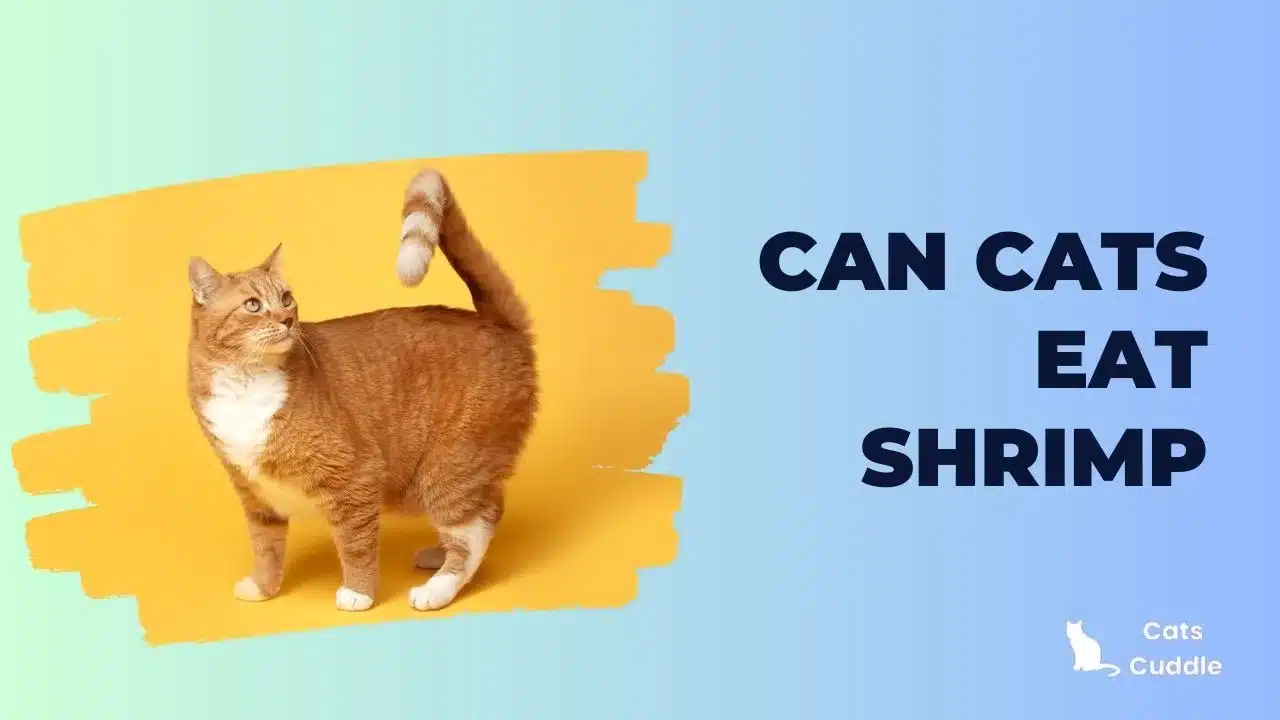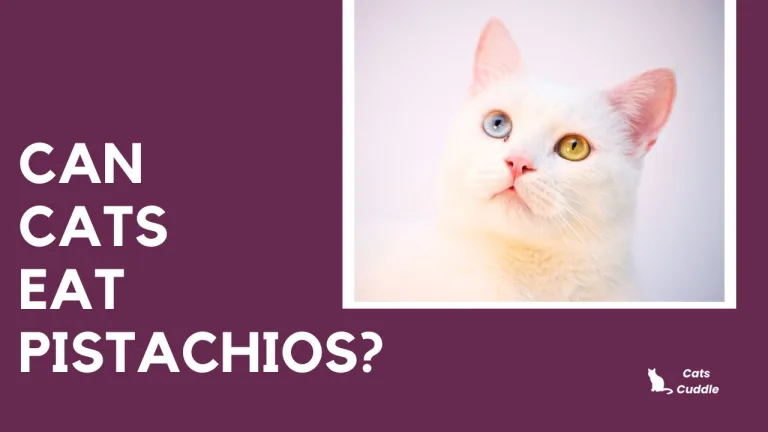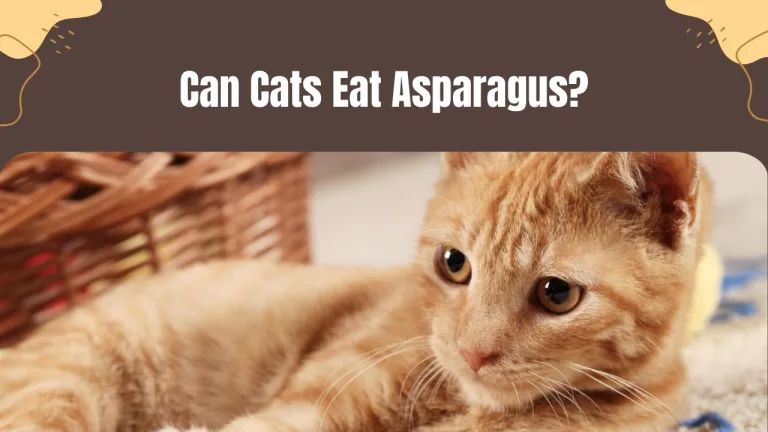Can Cats Eat Shrimp? Risks and Considerations
When it comes to feeding your cat, it’s essential to know which human foods are safe. One common question cat owners have is whether cats can eat shrimp. Understanding the nutritional needs of cats and the potential risks of various foods can help you make informed decisions about your pet’s diet.
Can Cats Eat Shrimp?
Yes, cats can eat shrimp, but it’s crucial to take specific precautions. Shrimp offers several nutritional benefits for cats, but it must be prepared correctly to ensure safety.
Cats are obligate carnivores, meaning their diet needs to be high in animal protein. Shrimp is a high-protein food, making it a suitable treat for cats. However, it’s important to serve it properly and in moderation to avoid any health risks.
Nutritional Benefits of Shrimp for Cats
High Protein Content
Shrimp is an excellent source of protein, which is vital for a cat’s health. Cats require a high-protein diet to support their muscle development, repair tissues, and maintain energy levels. The protein in shrimp is easily digestible and can provide a quick boost of energy for your cat.
Vitamins and Minerals
Shrimp is rich in various vitamins and minerals that are beneficial to cats. It contains vitamin B12, which supports the nervous system and helps in the production of red blood cells. Other essential nutrients found in shrimp include selenium, phosphorus, iodine, and choline. These nutrients play crucial roles in maintaining thyroid health, metabolism, and overall bodily functions.
Omega-3 and Omega-6 Fatty Acids
Omega-3 and omega-6 fatty acids in shrimp are good for a cat’s skin and coat health. These fatty acids help reduce inflammation, support brain health, and promote a shiny, healthy coat. They are also crucial for heart health and overall well-being. Including these fatty acids in your cat’s diet can improve their skin condition and reduce the risk of heart disease.
Risks and Considerations
While shrimp can be a healthy treat for cats, there are several risks and considerations to keep in mind.
Potential Allergies
Some cats may be allergic to shrimp. If you’re feeding shrimp to your cat for the first time, start with a small amount and monitor for any signs of an allergic reaction. Symptoms can include hives, itching, swelling, vomiting, and diarrhea. If any of these symptoms occur, contact your veterinarian immediately. Allergies can vary in severity, so it’s important to be cautious when introducing new foods to your pet’s diet.
Bacterial Contamination
Raw shrimp can harbor harmful bacteria such as Vibrio, E. coli, and Salmonella. These bacteria can cause serious health issues in cats, including gastrointestinal infections. To avoid bacterial contamination, always cook shrimp thoroughly before offering it to your cat. Cooking shrimp kills these harmful bacteria, making it safe for your pet to consume. Steaming or boiling shrimp is the safest preparation method.
High Sodium and Cholesterol
Shrimp naturally contains high levels of sodium and cholesterol. While these components are not inherently harmful in small amounts, excessive consumption can lead to health issues. High sodium intake can cause dehydration and increase the risk of kidney disease. High cholesterol can contribute to heart disease. Therefore, shrimp should only be an occasional treat. Overfeeding shrimp can lead to long-term health problems, so moderation is key.
Choking Hazards
The shells, heads, and tails of shrimp can pose choking hazards and cause gastrointestinal issues in cats. Always remove these parts before feeding shrimp to your cat. Ensure the shrimp is deveined and cut into small, manageable pieces. Shrimp shells are not digestible and can cause blockages in your cat’s digestive tract. By removing these parts, you minimize the risk of choking and digestive problems.
Safe Preparation Methods
To safely prepare shrimp for your cat, follow these guidelines:
Cook Thoroughly
Always cook shrimp before offering it to your cat. Boiling or steaming shrimp without any seasoning, salt, or oil is the best method. Cooking shrimp kills harmful bacteria, ensuring it is safe for your cat. Avoid frying or grilling shrimp with added oils or spices, as these can be harmful to cats.
Remove Shells, Heads, and Tails
The shells, heads, and tails of shrimp can pose choking hazards and cause gastrointestinal issues. Always remove these parts before feeding shrimp to your cat. These parts are not digestible and can cause blockages in the digestive tract. Removing them ensures your cat can safely enjoy the shrimp.
Devein the Shrimp
Devein the shrimp to remove any impurities that might be harmful to your cat. The vein in shrimp is essentially its digestive tract and can contain bacteria and other harmful substances. Removing the vein ensures the shrimp is clean and safe for your cat to eat.
Cut into Small Pieces
Cut the shrimp into small, bite-sized pieces to make it easier for your cat to eat. This reduces the risk of choking and ensures your cat can safely consume the shrimp. Smaller pieces are also easier to digest and less likely to cause gastrointestinal issues.
Serving Size Recommendations
When feeding shrimp to your cat, moderation is key. Shrimp should be an occasional treat and not a regular part of their diet. Cats have different dietary needs based on their size and activity level, so it’s important to adjust the serving size accordingly.
- Small Cats: Half of a jumbo-sized shrimp is sufficient.
- Large Cats: One whole shrimp is appropriate.
Always consult your veterinarian before introducing new foods into your cat’s diet. They can provide specific recommendations based on your cat’s health and nutritional needs. Monitoring your cat’s reaction to shrimp is important to ensure they do not develop any adverse effects.
Frequently Asked Questions (F.A.Q)
Can Cats Eat Raw Shrimp?
No, cats should not eat raw shrimp. Raw shrimp can contain harmful bacteria such as Vibrio, E. coli, and Salmonella, which can cause serious health issues in cats. Always cook shrimp thoroughly before feeding it to your cat to eliminate these bacteria. Cooking methods such as boiling or steaming are best.
Is Shrimp Good for Cats?
Yes, shrimp can be good for cats when given in moderation. Shrimp is high in protein and contains beneficial nutrients such as vitamin B12, selenium, and omega-3 and omega-6 fatty acids. These nutrients support various aspects of a cat’s health, including muscle development, skin and coat health, and overall well-being. However, shrimp should not replace a balanced diet and should only be offered as an occasional treat.
How Much Shrimp Can Cats Eat?
Cats should only eat shrimp as an occasional treat. For small cats, half of a jumbo shrimp is sufficient, while larger cats can have one whole shrimp. It’s important to avoid overfeeding shrimp due to its high sodium and cholesterol content. Always monitor your cat’s reaction when introducing shrimp into their diet and consult your veterinarian for personalized advice.
Can Cats Eat Shrimp Shells?
No, cats should not eat shrimp shells. The shells, heads, and tails of shrimp can be choking hazards and cause gastrointestinal issues. Always remove these parts before feeding shrimp to your cat. Shrimp shells are not digestible and can cause blockages in the digestive tract, posing a significant risk to your cat’s health.
What Are the Symptoms of Shrimp Allergies in Cats?
Symptoms of shrimp allergies in cats can include hives, itching, swelling, vomiting, and diarrhea. If you notice any of these signs after feeding shrimp to your cat, contact your veterinarian immediately. It’s important to introduce shrimp slowly and in small amounts to monitor for any allergic reactions. If your cat shows any signs of an allergic reaction, discontinue feeding shrimp and seek veterinary advice.
Wrapping Up
In conclusion, shrimp can be a tasty and nutritious treat for your cat when prepared correctly and given in moderation. Always consult with your veterinarian before introducing new foods into your cat’s diet. They can provide specific recommendations based on your cat’s health and nutritional needs. By following these guidelines, you can safely offer shrimp to your cat as an occasional treat, providing them with a delicious snack that also offers nutritional benefits.







